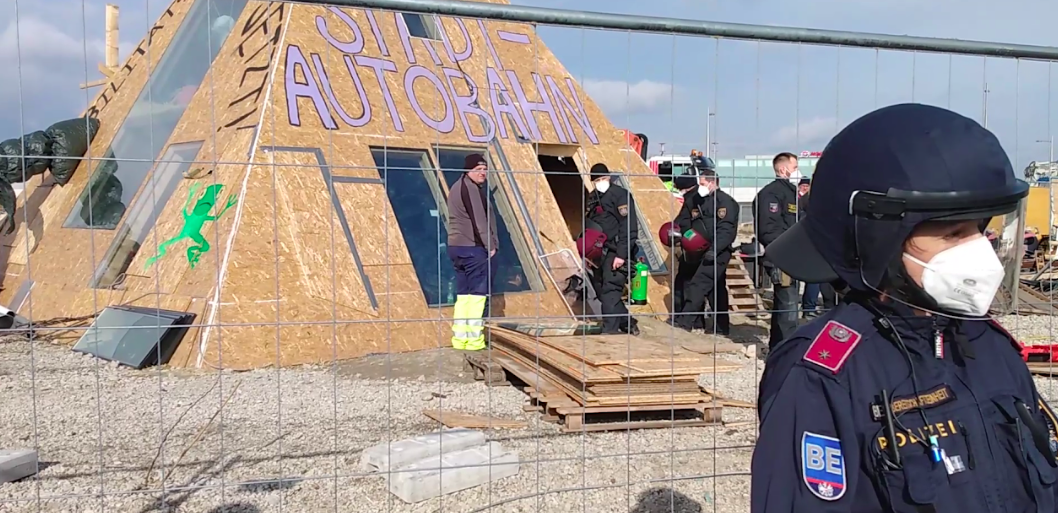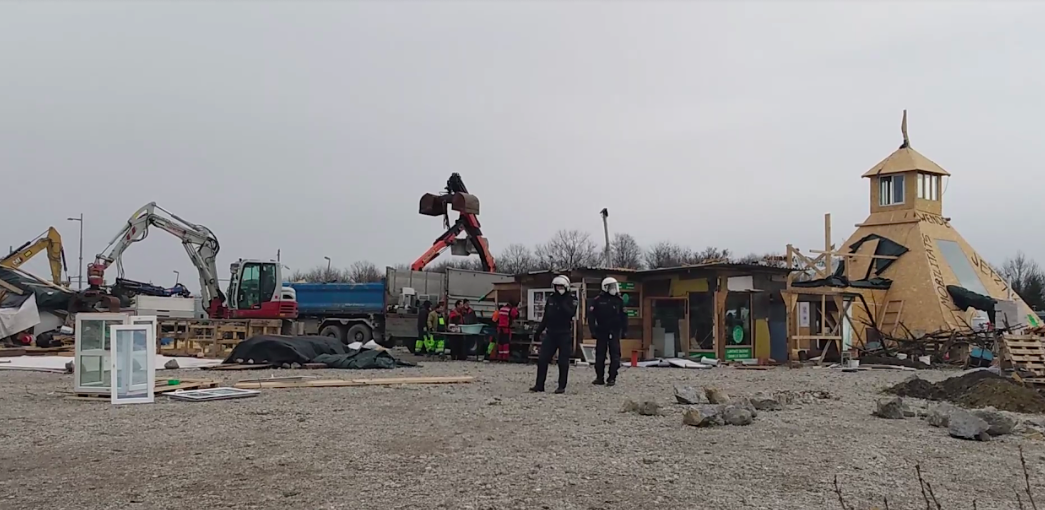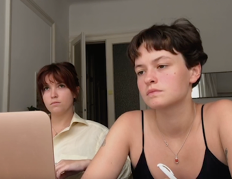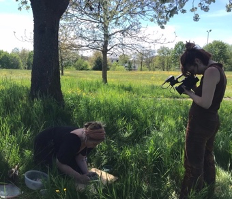Student films
It is our pleasure to be back on campus and to meet a growing number of anthropology students at the Vienna Visual Anthropology Lab. Some student films, developed at the Lab, are showcased below.
“WÜSTE”: Infrastructural Reproduction of an Occupational Protest Camp in Vienna (2022) by Alexander Hähnlein
In the summer of 2021, environmentalists in Vienna began occupying several construction sites in protest against a planned city highway and connected tunnel through the nature reserve Lobau Auen. The resulting camps also opened opportunities for activists to create autonomous and emancipatory spaces based on democratic and participatory principles.
This film investigates the Lobau Bleibt! protest camp named Wüste from December 2021 to February 2022.

“WÜSTE”: Infrastructural Reproduction of an Occupational Protest Camp in Vienna (2022) by Alexander Hähnlein
Research about protest movements in Europe and North America indicates a shift from traditional social movement organization (e.g., through political parties) to new forms of bottom-up mobilization, termed “prefigurative politics”. In prefigurative politics, visions for a better future are enacted in the present.
Protest camps are examples of such political mobilization, because participants challenge dominant norms and practices through their daily life on site. As places of both protest and home-making, they enable ethnographic insights into the organizational dynamics of prefigurative politics in contemporary social movements.

©Alexander Hähnlein

©Alexander Hähnlein
This film illustrates how Wüste is reproduced through different scales of participation in self-organized networks of supporters and horizontal communal relationships. These infrastructures enable activists to continuously recreate the camp as a community of resistance that attempts to live alternatives in the here and now.
Daughters of the Elements (2021) by Rébecca Alquier and Léa Stückelschweiger
The aim of this documentary is to conduct research into notions of femininity, feminism, gender, and the male gaze, as seen from the perspective of today’s self-proclaimed witches.


The inspiration was the book Witches, the undefeated power of women by Mona Chollet (2018, original in French). The book questions the role of witch-hunting in Europe between the 15th and 17th century. While witch-hunts have been highly romanticized and de-dramatized as “mythical crimes from the church burning a few women”, the book reconsiders witch-hunting as a history of female genocide, based on sexist reasonings.
Nowadays there is a revival of a modern witch movements on social media. Some see this movement as feminist because it reconnects women with their legacy and challenges patriarchy. For others, spirituality is innate: they do not especially engage with feminist problematics but might still experience empowerment. This leads us to the following research questions: is the reappropriation of witchcraft a sign of a new feminist wave? Can witchcraft be used as an emancipatory tool? What does it mean to talk about “feminine power”?
Rébecca Alquier and Léa Stückelschweiger made this film out of their own initiative, with equipment from the Vienna Visual Anthropology Lab and technical support from Viktoria Paar. In parallel, Rébecca wrote a bachelor thesis on witchcraft as part of the Bachelor Seminar: Empiric Data Collecting and Analysis (led by Dr. Bernhard Hadolt).
